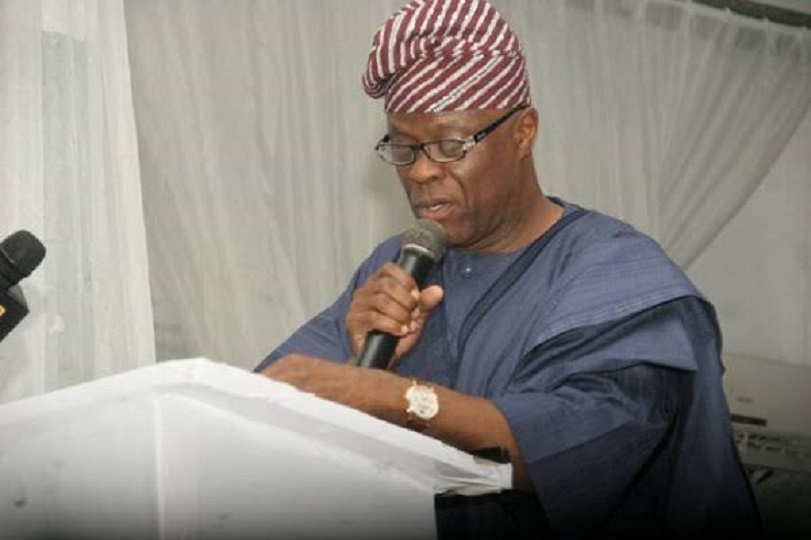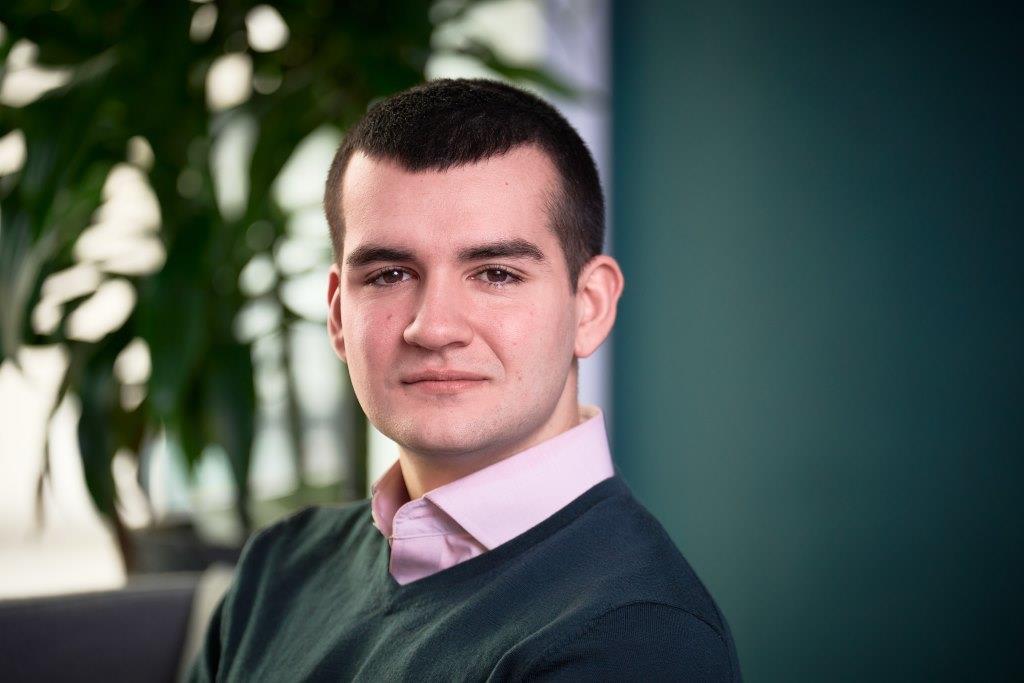Education
Africa’s $50bn Private Higher Education Sector Set for Accelerated Growth

By Dorian Maillard
The world is hurtling headlong into a digital future, and one crucial resource is in short supply: tech talent. Projections paint a stark picture. By 2030, the global tech talent shortage could soar to 85 million, translating to $8.5 trillion in potential lost annual revenue, and there’s no viable solution at scale to fill this looming deficit.
Yet, amidst this intensifying scramble for tech talent, a paradox unfolds. Africa, a continent brimming with potential, stands as a vast, untapped, and overlooked goldmine of tech talent that will be home to over 200 million digital natives by 2030. While the reasons for Africa’s underrepresentation in global tech are complex and multifaceted, innovative solutions are emerging, countless initiatives are underway, and the potential for further progress is enormous.
Navigating critical challenges in Africa’s higher education
Quality of education
African universities face challenges in delivering high-quality education, impeding the development of tech talent. Outdated curricula often fall short of meeting the dynamic demands of the tech industry, leaving graduates with skills misaligned with practical job requirements and the latest technologies. In addition, inadequate infrastructure and resources hinder hands-on training, limiting students’ ability to acquire necessary expertise.
Access to education
Ensuring broader access to higher education is imperative. Doing so involves tackling challenges related to affordability, enhancing infrastructure, and facilitating access to online education, which has gained heightened significance in light of the COVID-19 pandemic.
Despite notable strides in extending education across all age groups and internet access and smartphone penetration exceeding 80% in most developed African countries, many individuals struggle to access education. Over 20% of primary-age children and nearly 60% of youth aged 15 to 17 remain excluded from education, whether in the digital realm or the physical world.
Affordability is a primary barrier. Soaring tuition costs, coupled with constrained financial resources, often prevent talented individuals from pursuing advanced studies. This burden disproportionately affects students from low-income households, who struggle to afford basic tuition fees, let alone additional expenses like accommodation, textbooks, and transportation. The scarcity of financial aid and scholarships exacerbates the problem, leaving many deserving individuals without the means to pursue their educational goals.
Inadequate infrastructure, particularly in rural areas, poses another significant obstacle to educational access. Shortages of classrooms and libraries hinder the learning process, limiting opportunities for higher education. Furthermore, insufficient technology resources, such as computers, internet connectivity, and educational software, contribute to a widening digital divide that intensifies educational disparities and prevents individuals from meeting the demands of the 21st-century tech workforce.
Economic, political stability, and industry engagement
A robust and stable economic and political environment is the cornerstone for fostering a thriving tech talent ecosystem. It provides a fertile ground for businesses to invest in R&D, creating opportunities for tech professionals to learn, innovate, and refine their skills. This fuels technological advancements, propelling the sector forward and attracting further investment.
Development Finance Institutions (DFIs) like the World Bank, IFC, BII, Unicaf, DEG, SwedFund, Norfund, IDC, and OPIC, in collaboration with governments, universities, and businesses, have a vital role to play in fostering a more prosperous business environment, which directly and indirectly benefits the education sector. These organisations can identify skills gaps, develop training programs, and catalyse new partnerships to generate employment opportunities for graduates.
Governments and DFIs have already made notable achievements by implementing sound policies. Seychelles now ranks among the top 50 education systems globally, surpassing countries like Ukraine, Hungary, Russia, and the United Arab Emirates. The country has achieved an impressive 99% literacy rate among its 15-24-year-old population by implementing free, mandatory education and partnering with DFIs to help fund infrastructure expansions, enhance teacher training, and develop innovative programs.
Tunisia is another success story. Despite grappling with political and economic instability, the country has positioned itself as an educational leader in Africa, boasting the second-best education system on the continent. This achievement can be attributed to the Tunisian government’s allocation of 12-20% of GDP to education.
These examples, drawn from two small countries with a combined population exceeding 12 million, provide compelling evidence of the transformative potential inherent in effective policymaking and collaboration. Implementing similar policies in larger countries like Nigeria, Egypt, or South Africa would amplify the impact, potentially addressing a significant portion of the global shortage of skilled tech workers.
The time to make a strategic bet on African edtech
Africa is home to the world’s largest untapped pool of potential talents capable of addressing the growing global shortage of tech workers. Given the rapidly evolving nature of technology and the continent’s complex operating landscape, realising this potential will require a concerted effort from governments, DFIs, and the private sector.
Despite its considerable size, the market for specialised tech higher education is primarily controlled by entities in developed countries, creating an artificial barrier for tech talent in developing nations. However, forward-thinking companies are beginning to break through these barriers, garnering support from reputable private equity investors.
As global markets rebound, we expect Africa’s $50bn private higher education sector to accelerate. Industry leaders are poised to emerge, capitalising on the continent’s affordable supply of teachers and real estate and advancing AI-driven tools to speed up content generation and performance assessments. These factors will create a virtuous cycle of growth whereby lower costs fuel innovation, which attracts more students and investors, leading to further expansion and cost reduction. This will give rise to “high-risk, high-reward” opportunities that offer above-market returns in an environment constrained by demographic challenges in developed countries.
Dorian Maillard is the Vice President of DAI Magister
Education
Hallos Launches Learning247 Summit

By Adedapo Adesanya
Live-learning and creator-economy platform, Hallos, as part of its expansion drive, has unveiled plans to equip millions of youths and women with digital skills and monetisation opportunities through the Learning247 Hallos Summit, aimed at integrating Nigeria’s South-East into the rapidly expanding global creator economy.
At a sensitisation and stakeholder engagement forum in Enugu, the organisation also called for stronger strategic partnerships with government agencies, educational institutions, development organisations, media houses and private-sector stakeholders to advance the creator economy as a credible engine for mass employment, youth prosperity and inclusive economic growth.
The chief executive of Hallos, Mr Alexander Oseji Uzoma, renewed the call for increased investment in internet penetration, reliable power supply, digital infrastructure, creative studios and youth-focused innovation hubs across Nigeria, especially the South-East.
Describing the creator economy as one of the most accessible and scalable employment frontiers globally, he noted that with basic tools such as a smartphone, internet access and creative skills, young people can build audiences, monetise knowledge and generate sustainable income without heavy capital investment or long career pathways.
According to Mr Uzoma, the creator economy offers low-barrier entry into diverse professions, including content creation, social media influencing, live tutoring and digital coaching, video production, podcasting, graphic design, music and performance arts, digital marketing, merchandise design, e-commerce and community management. These activities support a broader value chain spanning production, distribution, technology and management.
The Hallos co-founder also explained that global projections place the creator economy in the hundreds of billions of dollars, with millions of creators worldwide earning sustainable incomes, stressing that Hallos is focused on localising these opportunities to ensure African youths can participate meaningfully and compete globally.
He further noted that Hallos operates a live-learning and creator-focused platform that integrates education, gamified quizzes, merchandising and voluntary fan donations into a single ecosystem. Through the platform, creators can host live learning sessions and masterclasses, earn from quizzes and challenges, sell branded merchandise, receive voluntary donations, build communities around their expertise and organise monetisable podcasts.
Mr Uzoma said the creator economy, driven by social media platforms, streaming services, digital commerce and content monetisation tools, has evolved into a major global industry capable of generating wealth, creating jobs and expanding export earnings.
He stressed that social media should no longer be viewed as a recreational space but as a viable business environment for wealth creation.
“The focus should not just be on content creation alone but on building businesses around content. It is about value creation and structured digital entrepreneurship,” he said.
He disclosed that Hallos intends to reach about 10 million youths nationwide, with over 5,000 already engaged across its programmes, while placing strong emphasis on bridging the gender gap by empowering women and girls through targeted digital training, mentorship and access to monetisation platforms.
As the digital economy continues to expand, Hallos said the creator economy stands out as a practical and scalable solution to youth unemployment, offering low entry barriers and global earning potential.
The company reaffirmed its commitment to bridging the gap between talent and income, enabling young Africans to earn well above minimum wage through creativity, knowledge and structured participation in the global digital economy.
Education
Bayero University PG Students to Enjoy Dangote’s N1.5bn Scholarship

By Modupe Gbadeyanka
Post-graduate students of Bayero University Kano (BUK) will benefit from a scholarship worth about N1.5 billion from the Aliko Dangote Foundation (ADF).
The businessman put down the funds to support eligible MBA, entrepreneurship, and management postgraduate students of the institution under an initiative known as MHF Dangote Graduate Business Scholarship.
At a ceremony on Tuesday, the foundation and the school signed a Memorandum of Understanding (MoU) at the auditorium of the Dangote Business School, Kano.
The deal is to provide N300 million annually over five years as scholarship awards to the beneficiaries, who will receive N150,000 each per session, beginning with the 2024/25 academic session. This is equivalent to 50 per cent of the current N300,000 fee paid by the post-graduate students. There are 1,225 students in the Business School (696 fresh and 529 returning students).
One of the beneficiaries, Mr Khalid Bababubu, who is into manufacturing and specialises in MBA, Finance and Investment, thanked the organisation for the gesture.
“We are happy to be beneficiaries of this initiative. Education is the bedrock of national development, and we will not take this scholarship for granted,” he said.
A representative of ADF, Ms Mariya Aliko Dangote, said, “Our vision at the Foundation is to build human capital that translates into economic opportunity.
“Strengthening business and entrepreneurship education is critical to turning knowledge into enterprise, innovation, and jobs. This scholarship deepens our commitment to Dangote Business School by investing directly in the next generation of business leaders and change-makers.”
On his part, the Vice Chancellor of Bayero University Kano, Prof. Haruna Musa, said, “This support comes at a critical time for many families. Beyond financial relief, it strengthens the Business School’s role as a centre for developing entrepreneurial and management talent, particularly for women who are increasingly taking leadership roles in enterprise.”
It was explained that newly admitted students will receive automatic tuition reductions during registration, and returning students who have already paid in full will receive rebates. The N300 million allocation is structured to cover all eligible postgraduate students based on current enrolment capacity.
Any unutilised balance in the first year will be retained within the Dangote Business School development envelope to strengthen learning infrastructure and digital academic capacity, ensuring continued enhancement of the academic environment.
The MHF Dangote Graduate Business Scholarship is distinct from ADF’s recently announced nationwide STEM education interventions.
Education
Entries for InterswitchSPAK 8.0 Begin, Over N40m up for Grabs

By Aduragbemi Omiyale
Senior secondary school students across Nigeria have been invited to apply and demonstrate their academic excellence on a national stage in the eighth edition of the prestigious national science competition known as InterswitchSPAK.
The contest is organised by Interswitch, Africa’s leading technology company focused on creating solutions that enable individuals and communities prosper.
Registration for InterswitchSPAK 8.0 via www.interswitchspak.com has opened and will close on Friday, May 24, 2026. For the first time, in addition to group registrations through schools, parents can also register their individual children for the competition.
This year’s edition features a scholarship pool exceeding N40 million, with Interswitch expanding the prize structure to ensure broader impact.
The overall winner will receive a N15 million tertiary scholarship, including monthly stipends. The first runner-up will be awarded a N10 million scholarship, including monthly stipends; while the second runner-up will receive a N5 million scholarship, also including monthly stipends. All scholarships are payable over 5 years. Also, the top 9 finalists will all receive brand new laptops and other exciting prizes.
In addition to the top prizes, Season 8 introduces enhanced rewards for student finalists ranked 4th to 9th, as well as increased recognition for teachers supporting qualifying students from 1st to 9th place. This expanded structure reinforces Interswitch’s commitment to rewarding academic excellence and recognising the critical role educators play in shaping student success.
“At Interswitch, we strongly believe that Nigeria’s future will be shaped by how well we nurture today’s young minds. InterswitchSPAK goes beyond competition; it is a long-term commitment to empowering students and supporting teachers who are laying the foundation for innovation, problem-solving, and national development.
“As we launch Season 8, we remain focused on creating opportunity, rewarding merit, and inspiring excellence across Nigeria,” the Executive Vice President for Group Marketing and Communications at Interswitch, Ms Cherry Eromosele, said.
Designed to empower young minds in the Science, Technology, Engineering, and Mathematics (STEM) areas, InterswitchSPAK identifies, nurtures, and rewards students while equipping them with the skills and knowledge required to excel in STEM fields and drive innovation.
Over the past seven seasons, InterswitchSPAK has positively impacted thousands of students across the country, offering full university scholarships, mentorship opportunities, and national recognition for outstanding academic performance.
Beyond these rewards, the programme has consistently reinforced the importance of STEM education as a critical driver of innovation, problem-solving, and sustainable national development.
Through a transparent, technology-enabled selection process, InterswitchSPAK has also promoted educational equity by providing students from diverse socio-economic backgrounds with equal access to opportunity, ensuring that performance and merit remain central to success.
-

 Feature/OPED6 years ago
Feature/OPED6 years agoDavos was Different this year
-
Travel/Tourism10 years ago
Lagos Seals Western Lodge Hotel In Ikorodu
-

 Showbiz3 years ago
Showbiz3 years agoEstranged Lover Releases Videos of Empress Njamah Bathing
-

 Banking8 years ago
Banking8 years agoSort Codes of GTBank Branches in Nigeria
-

 Economy3 years ago
Economy3 years agoSubsidy Removal: CNG at N130 Per Litre Cheaper Than Petrol—IPMAN
-

 Banking3 years ago
Banking3 years agoSort Codes of UBA Branches in Nigeria
-

 Banking3 years ago
Banking3 years agoFirst Bank Announces Planned Downtime
-

 Sports3 years ago
Sports3 years agoHighest Paid Nigerian Footballer – How Much Do Nigerian Footballers Earn
















